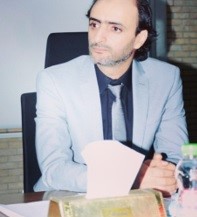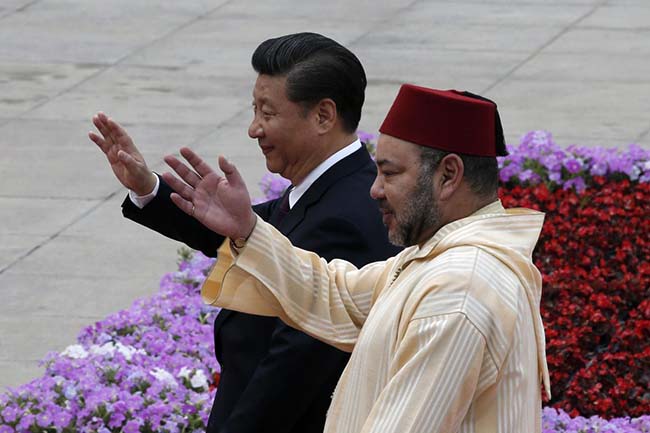«We the people[1]» reflects the democratic
Character of the constitution
In the first aspects of constitutional history, the idea of the constitution seems to be simple: It means "how something is organized", and in this case the U.S constitution organized the 13 states into a simple single national government[2].
In this sense, Alexander Hamilton announced, at the time, that "the people of the thirteen colonies were the first to be given the opportunity to define their constitution "from reflection and choice" rather than "accident and force[3]"[4]. So, having declared their independence from Great Britain, and having subsequently purchased it on the battlefield, the 13 colonies thirsting for political liberty then set about the task of framing what became the U. S. constitution as the first written constitution.
The delegates agreed that the authority for the government should not come from a king, but should come from the people themselves. That idea is expressed in the first line of the constitution in the preamble. What happened in Philadelphia was really a revelation in constitutional thinking. Thus, at the time, the delegates made a bunch of intellectual and philosophical leaps that transformed the nation of the union. The first leap was to come to understand that "we the people" of the United States rather than «we the people" of each of the several states were sovereign.
From that Time, The democratic character of the Constitution is revealed in the first three words of the U.S constitution: "We the people...». The idea that the people through their chosen representatives should form a government that challenged the way virtually every other country in the world was governed at the time[5].
Writing in support of this document, and against the Anti-Federalists, "the Federalists defended the essential principle of the Constitution: a strong central government with a due regard for the rights and liberties of both individuals and the states[6]". Federalists and Anti-Federalists wrestled with one another over these issues, both fearing that the inherent weakness of human nature could soon endanger the new republic[7]. This is one of reasons that the Federalists were "so insistent upon the separation of powers and checks and balances[8]". And as noted by Madison, "No theoretical checks, no form of government, can render us secure[9]"; the 13 states fully realized that, human nature being what it is the separation of governing powers was an absolutely critical element in curtailing "the abuses of government[10]".
Historically, Liberal theory, as philosophical base of the constitutionalism, was chiefly concerned with limiting the absolute powers of Kings, a goal which could best be secured through the separation of powers, endowing the legislature and the judiciary with rights which were safe from executive encroachment. Thus, Parliament began by being convened at least once a year. It would vote all legislative enactments and would further have the right to impeach ministerial officials. Its proceedings would be free and unhindered, and Parliament would control the power of the purse. With time this was extended to the larger sphere of executive action, with the doctrine of ministerial responsibility to Parliament.
In fact, if "the people" existed for such theorists as Locke or Montesquieu, Bolingbroke or Madison, they represented more of a potential threat to a liberal order than a bulwark to it. Locke did not hesitate to place property first and foremost among the values of civil society and to oppose any threats which might arise to it. Montesquieu was candid about his opposition to democracy, speaking about the ineptitude of the lower classes for the art of government. As for Madison, several of his contributions to The Federalist Papers emphasized the dangers to liberty which, in a republican scheme of government, were likely to come from the people[11].
In 18th-century, England was more successful than America or France in fending off the doctrine of popular sovereignty. While the revolutions in the latter two countries did not go much beyond liberal forms, a democratic quality was inherent to both. In the American Revolution, the more conservative of the two, this took the broad participation in the framing of the constitution and for something close to universal white male suffrage in the elections of President and Congress.
In France, Rousseau had articulated a theory of popular sovereignty in his discussion of the general will in The Social Contract. While Rousseau reserved democracy for the legislative rather than the executive realm, he underlined the inalienability of popular sovereignty. He berated the English for their faith in septennials elected Parliaments, emphasizing the importance of direct citizen participation in political affairs.
It was the people, assembled annually, who should decide whether the existing constitution was to be kept or altered. Rousseau was, of course, only one intellectual influence on the French Revolution. Still, from the initial events of 1789 through the stormy days of the Convention and the Jacobin dictatorship, one can trace an emerging doctrine of popular sovereignty. This concept was not without difficulties.
But let us be clear about what was displaced by popular sovereignty. It swept away the skein of feudal privilege, undid the not-so-sacred powers of the king, and allowed to the third estate and, marginally, to “le petit people”, a first taste of political participation. In other words, with one stroke it abolished aristocratic pretensions and legitimist claims to absolute power[12]. In fact, the term "democracy" basically means that the People (we the people) exercises sovereignty.
Indeed, the appetite for constitutionalism, as a concept, arises not from political theory but from the tangible needs of millions of people. Above all, the idea of constitution is advanced by the success of political movements whose goal is to properly establish and protect the rules of democracy and thus improve the lives of the majority of the population in a number of ways. The constitution establishes the rights of people and the rules under which they behave towards one another in society.
Since then, the idea common to all the post-revolutionary constitutions, after, was summed up in the will of the constituent to seek a certain balance of powers. The balance of powers then allows reciprocal control of one power over another and makes it possible to constitute a guarantee for the concentration of power within the executive or legislative power; As Montesquieu pointed out, “So that we cannot abuse power, power must, by the arrangement of things, stop power[13]".
Nowadays, the precise issues that constitution-makers confront vary widely and depend on the specific historical circumstances under which they operate. Generalizations are difficult, perhaps impossible, to come by. Yet, we can identify some issues about constitutional design that arise repeatedly. One of the central questions in constitutional theory is: how constitutions can be used to better protect against threats to the democratic order[14] . This question has taken on new urgency since the Arab Spring, with a fresh wave of new, embattled democracies throughout the Middle East[15].
[1] Some examples:
“We the People of the United States…” Preamble of the U.S constitution
« The French people solemnly proclaim…” Preamble of the France’s constitution
“We, the multinational people of the Russian Federation…” Preamble of the Russian constitution
“The German people, in the exercise of…” Preamble of the German constitution
[2] Although the United States adopted a constitution in 1781, it was in Philadelphia in 1787 that the delegates of the states met to draft the Constitution that has endured to this day. General George Washington, who had commanded the patriot armies against the British military during the Revolutionary War, was chosen to chair the constitutional convention. The Constitution was drafted and adopted, one by one, by the 13 American states, thereby coming into force. But, that was not easy to do. In fact, the person who led the meeting that created the first constitution was George Washington. He said, at the time «the fact that so many people from so many different parts of country were able to come to gathers and agree on a simple system of government was a miracle".
[3] The Federalist No 1 (Hamilton) … Federalist No. 1 is an essay by Alexander Hamilton, which became the first of a collection of essays named The Federalist Papers. It was published on October 27, 1787, under the pseudonym Publics. This paper provides the outline for the rest and argues for the inadequacy of the Articles of Confederation. Federalist No. 1 introduces a series of essays published in the Independent Journal, the New-York Packet, and the Daily Advertisers a response to Anti-Federalist opposition to the proposed US Constitution. After the Constitutional Convention of 1787, the new Constitution was sent to the various states for ratification in September 1787. Anti-Federalist essays condemning the document began to surface later that month, quickly followed by the Federalist efforts of Alexander Hamilton, James Madison, and John Jay.
[4] The said observation may have been accurate, but that opportunity now extends to people everywhere ".
[5] James Laxar; GROUNDWORK DEMOCRACY ; published 2010 by A/C Black Publishers’ London; p: 20
[6] Gertrude Himmelfarb: « The Roads to modernity: The British, French, and American Enlightenment“, Alfred A. Knope, New York, 2004; p: 194.
[7] Idem; pp: 198-201.
[8] Idem; p: 201.
[9] Idem; p: 203.
[10] Idem; 202.
[11] PHILIP RESNICK: Parliament vs. . people : An essay on Democracy and Canadian Political Culture; Copyright; 1984; First printing September 1984; p: 6.
[12] PHILIP RESNICK: Parliament vs. . people : An essay on Democracy and Canadian Political Culture; Copyright; 1984; First printing September 1984; p: 7.
[13] Montesquieu, of the spirit of the laws, book XI, chap. VI
[14] JAMES LAXAR: GROUNDWORK GUIDES, DEMOCRACY. Published 2010 by A@C Black. London; p: 20
[15] Landau, David, Abusive Constitutionalism (April 3, 2013). 47 UC Davis Law Review 189 (2013), FSU College of Law, Public Law Research Paper No. 646, Available at SSRN: https://ssrn.com/abstract=2244629; p: 1/
*Professor of constitutional law, Sidi Mohamed Ben Abdellah University, Fez,, Morocco/ Abdelhaq.belffqih@usmba.ac.ma







